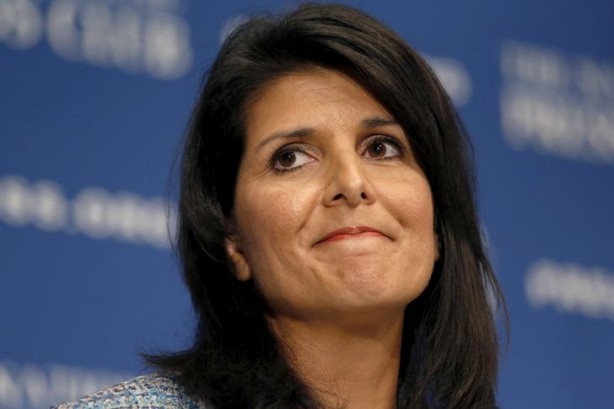
The United States Senate on Tuesday confirmed Indian-American governor of South Carolina, Nikki Haley, as the US ambassador to the United Nations (UN) under US President Donald Trump's administration.
Haley will have to stand up for dignity of all people, says ex-US Political Affairs envoy to UN
Haley received an overwhelming confirmation for the position from the Senate with a vote of 96 to four. She has an arduous task ahead of her: to reassure the apprehensive government around the world that America and the Trump government will remain engaged in international diplomacy. Haley is set to assume her position at the UN headquarters in New York.
Before Haley's confirmation, the Trump team just had three cabinet ministers in place including Secretary of Defense James Mattis, Homeland Security Secretary John Kelly and CIA Director Mike Pompeo. Pompeo was given a confirmation on Tuesday and was sworn-in to his official position later that day.
Daughter of Indian immigrants, Haley last year had seemed to negate Trump's campaign rhetoric, asking people to "resist the temptation" after "siren call of the angriest voices." She is also pro-immigrant as she rubbished the anti-immigrant ideologies, stating "no one who is willing to work hard, abide by our laws, and love our traditions should ever feel unwelcome in this country."
During the Senate vote, Democratic Senator Ben Cardin backed Haley stating, "she does not support efforts to slash American funding to the UN and that she would consistently vocalize US values, including universal human rights, good governance and press and religious freedom." Cardin also added that Haley, in her hearing testimony, acknowledged that "Crimea is not Russian" and spoke "very strongly" about defending Ukrainian sovereignty.
The US president, during his presidential campaign, had suggested that he would like to slash the US funding to the UN climate change programmes. He had also opposed a UN Security Council resolution held last month against the illegal Israeli settlements in Palestinian territory. He had wanted US to veto the resolution, but Obama administration had refrained from it.
Soon after the passing of the resolution, Trump had taken to Twitter to denounce the UN and had called the organisation "just a club for people to get together, talk and have a good time." He had also added, "As to the UN, things will be different after Jan. 20th."














